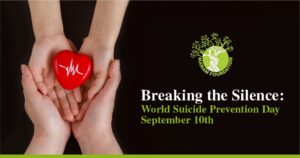Empowerment in Every Breath: Celebrating National Stress Awareness Day
Stress is a state of worry or a natural response to the demands and pressures of daily life. I feel life is a journey filled with ups and downs and unexpected moments that can leave us feeling overwhelmed and stressed. Everyone experiences stress to some degree but the way we respond to stress, however, makes a big difference in our overall well-being.
Whether it’s deadlines at work, relationship conflicts, financial worries, or health issues, we all experience stress. While some stress can be motivating in our daily life to carry out work, chronic or excessive stress can take a toll on our physical, emotional, and mental health to a large extent.
How to know if someone is stressed:Recognizing signs of stress in others and oneself can be crucial to extending support and assistance. People often misinterpret or fail to understand its symptoms which escalates the condition. Here are some of the common indicators that someone may be experiencing stress:
1. Increased irritability, agitation and mood swings regularly.
2. Physical symptoms such as headaches, rapid or shallow heartbeat, fatigue, and changes in appetite.
3. Heightened anxiety, worry, or fearfulness.
4. Persistent worrying about the future, racing thoughts, and difficulty focusing on tasks.
5. Strained relationships with coworkers, family or friends.
6. Decreased productivity or motivation to do things.
I have also experienced my share of stressors throughout my life. I am someone who takes a lot of stress from the pressures of academic success to the challenges of balancing my work and family relationships. There have been times when stress threatened to overwhelm me and started to manifest in my bad physical health and mental health. Thus, I know how important it is to recognize stress and work on it. But I have accepted it as an inevitable part of my life and make continuous efforts to balance it out. Through meditation, self-resilience, and adopting healthy coping strategies of journaling and talking to people, I am in the process of learning to navigate stress in my daily life. But, it is also okay to not feel good even after making efforts to mitigate stress, it completely depends on external factors and individual experiences. With patience and continued efforts, slowly and steadily, one learns to accept it and overcome stress.
Thus, I believe there is a sheer need to raise awareness about the effects of stress. National Stress Awareness Day, established in 1998 by the International Stress Management Association( ISMA) serves as a platform to help provide information on stress and strategies on how to address it for both companies and individuals. It is celebrated on the first Wednesday of November every year serving as a timely reminder to prioritise well-being.
The campaigns, workshops, and awareness programs on this day aim to educate employers and employees about dealing with stress at the workplace and establish programs about dealing with stress at the workplace as well.
Strategies for Stress Management
1. Prioritizing self-care
2. Practicing mindfulness meditation and yoga practices to manage stress more effectively.
3. Don’t hesitate to reach out to friends, family members, or mental health professionals for support and guidance whenever needed.
4. Learn to say no to activities that drain your energy or overwhelm you by setting boundaries.
5. Accepting stress as a part of life and not just your whole life by practicing gratitude and acknowledging the positive side of life also.
Let us recommit to prioritizing our well-being and embracing resilience in the face of life’s challenges. We have to make sure we are not alone in our struggles, and together, we can navigate and offer support to those in need.
Contact us today!
Follow Us On:-
https://www.facebook.com/manammindfreehttps://www.instagram.com/manammindfree/
https://twitter.com/reachmanam
https://www.linkedin.com/in/manam-foundation-15243a191/





